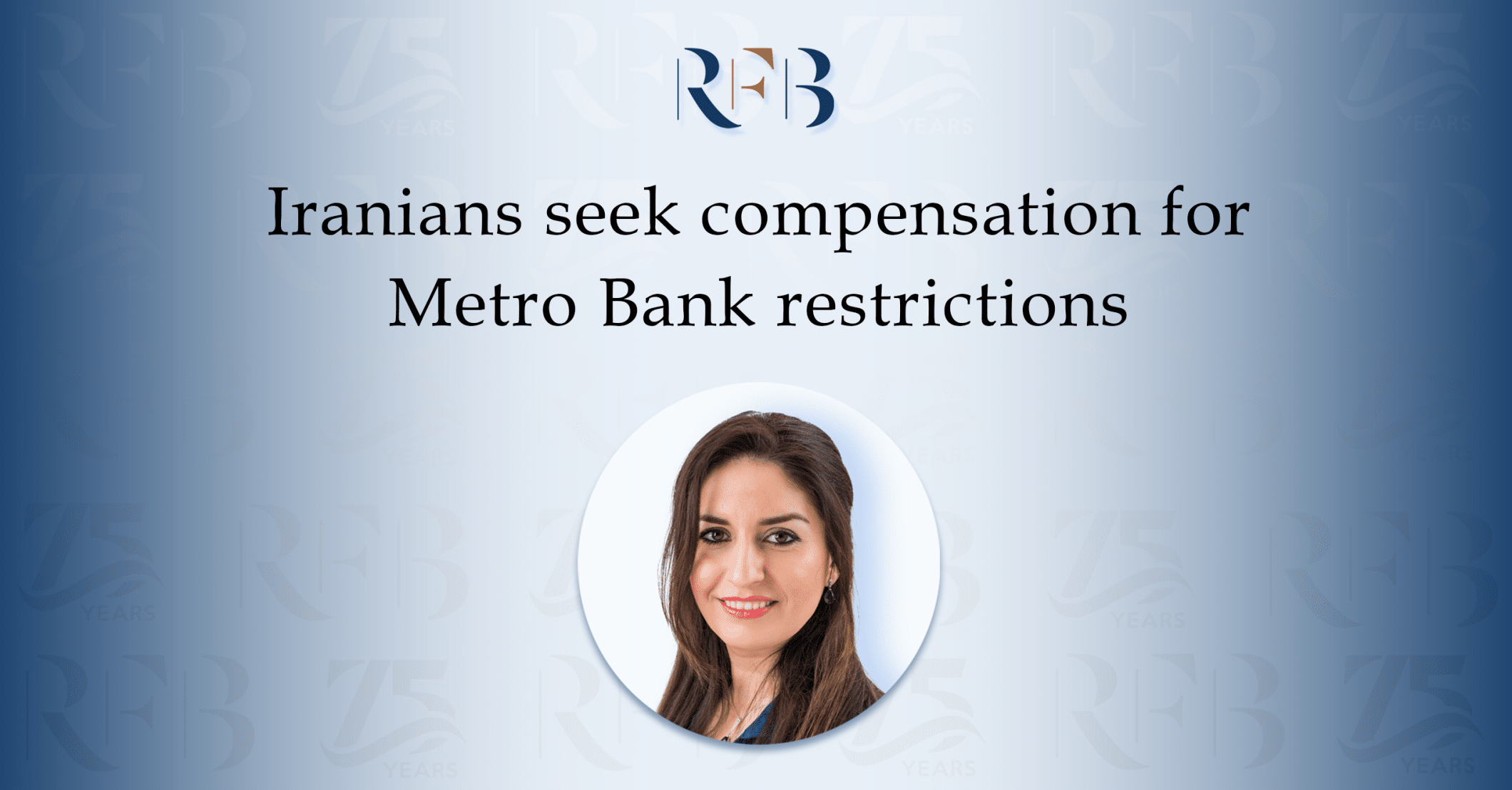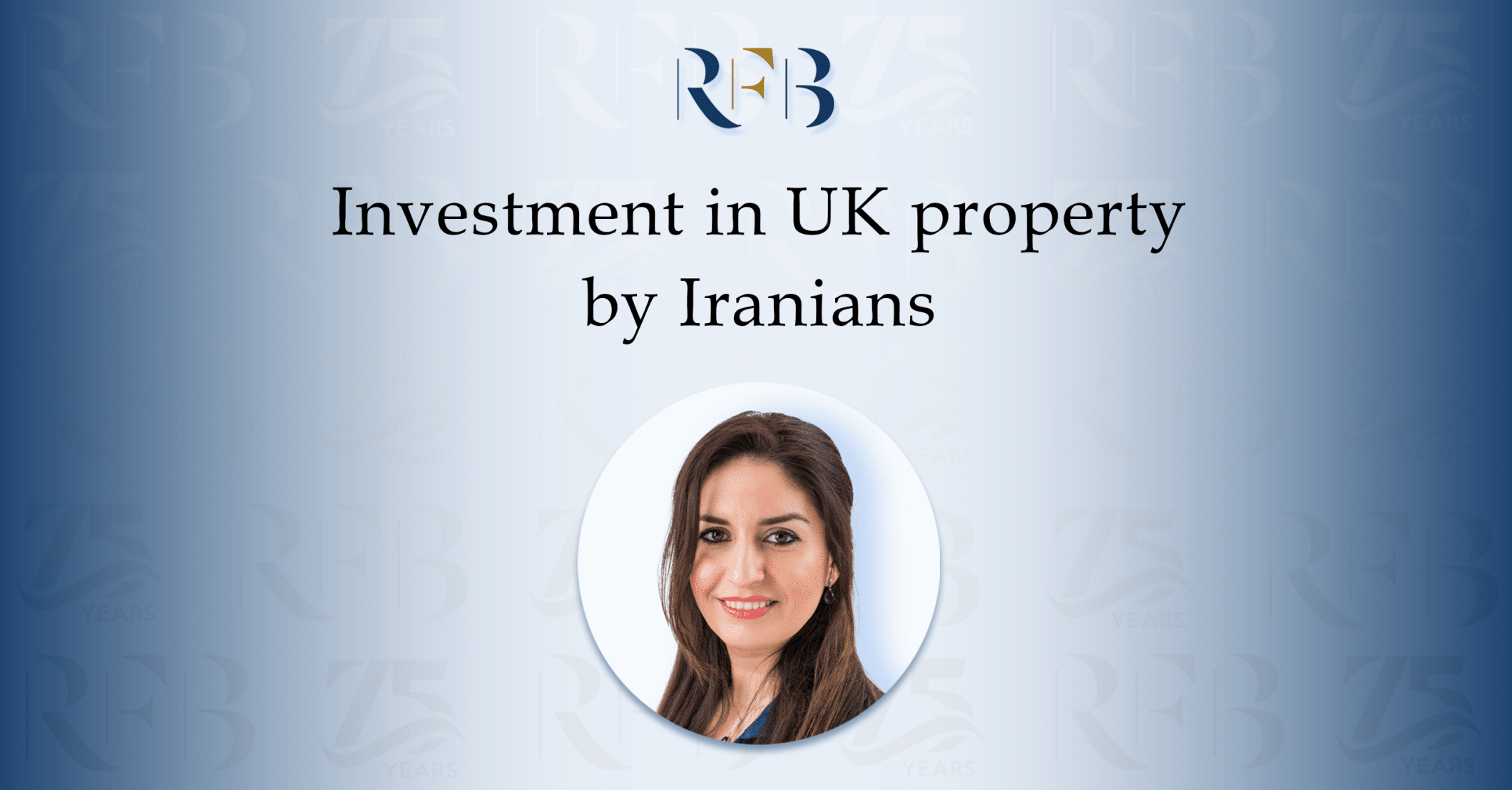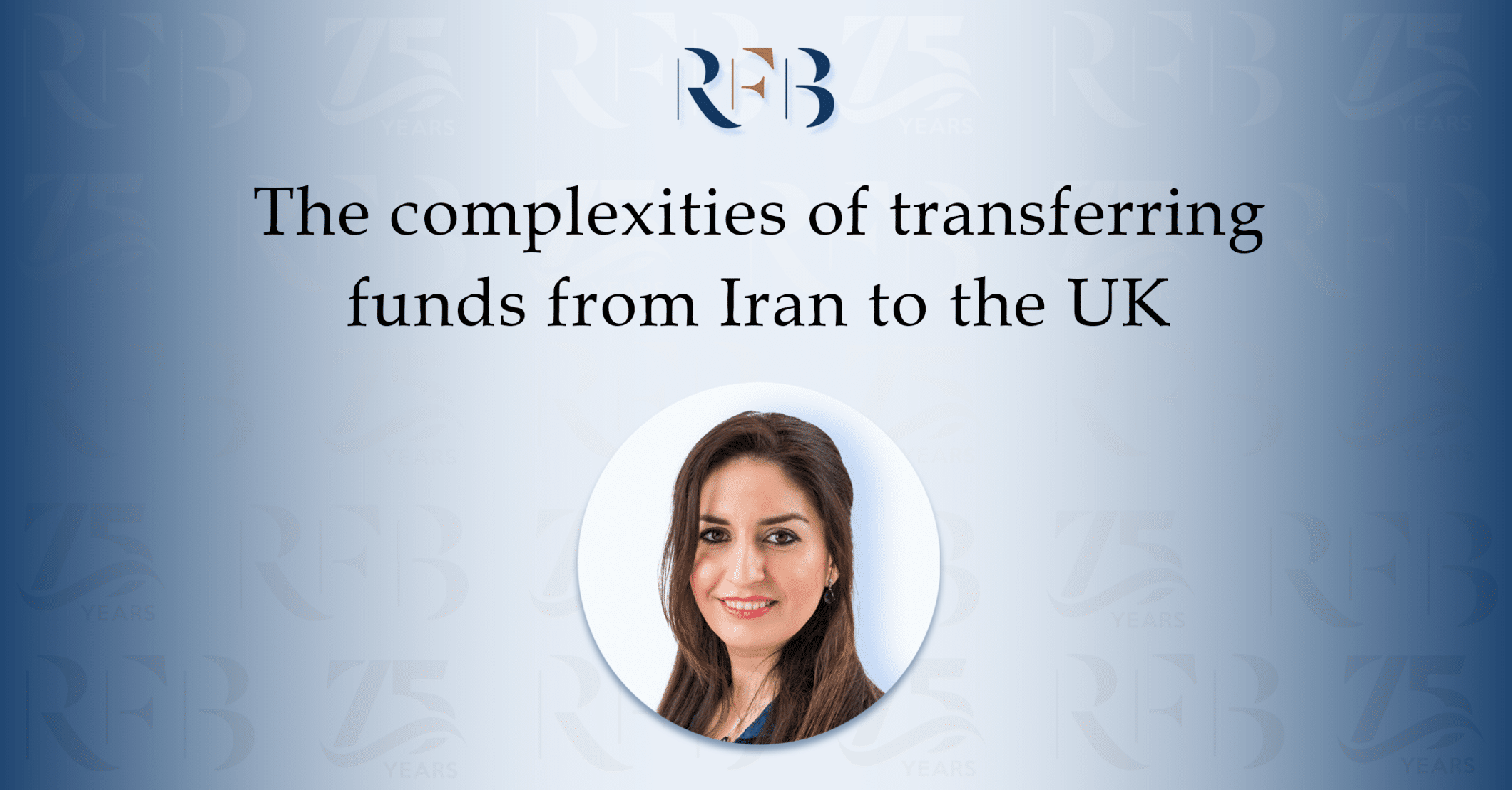The complexities of transferring funds from Iran to the UK
A large number of Iranians live in the UK and many more continue to receive student visas and investment-related visas to move to the UK. These individuals often require transfer of their legitimate lawful funds from Iran to the UK. Unfortunately, however, Iranians in the UK continue to face bank account restrictions and bank account closures.
This article provides an exploration of the complexities involved in the transfer of funds from Iran to the UK.
Possible Method of Fund Transfers
At present there are no direct banking channels between Iran and UK, and, as a result, the only method of transferring funds from Iran to the UK is through Money Exchange Businesses. Money Exchange Businesses may be regulated in the UK or in Iran:
1. UK-regulated Money Exchange Businesses
There are many Money Exchange Businesses in the UK that are regulated by the Financial Conduct Authority (FCA) and they transfer funds between Iran and the UK. As a result of their FCA regulation, these companies are required to abide by all relevant UK laws including the Anti-Money Laundering regulations. This method of transfer is often the preferred method of transfer for Iranians living in the UK.
2. Iran-regulated Money Exchange Businesses
There are a great number of registered Money Exchange Businesses in Iran that are overseen by the Iranian government. It is common for Iranians to walk into one of these Exchange shops and arrange their transfer of funds to the UK. While these companies are regulated within Iran, they are not subject to UK laws and, therefore, transfers through these companies may inadvertently violate UK laws. For instance, these companies may not run Anti-Money Laundering checks that are similar to the UK and, therefore, proceeds of crime may be deposited into an innocent person’s bank account. If this happens, the account holder can face grave legal issues in the UK including freezing orders by UK authorities.
Due to the lack of a direct banking channel with Iran, regulated Money Exchange Businesses sometimes transfer funds by swapping their customers’ or agents’ funds on both sides of the transaction after they carry out full due diligence and money-laundering checks on these customers and agents and after they confirm the legality of all sources of funds. This method leads to third-party deposits or cash deposits into a bank account.
Here is an example to illustrate the transaction described above: Company X is a regulated money exchange business and A and B are both its customers. Customer A lives in Iran and has sold Iranian Rials to Company X and, in return, it wants GBP to be sent to an account in the UK. Customer B lives in the UK and has sold GBP to Company X and it wants Iranian Rials to be sent to an account in Iran. Company X has run due diligence checks on both A and B and knows the funds are legitimate and lawful. Therefore, company X instructs A to send the Iranian Rials to B’s designated account in Iran and instructs B to send the GBP to A’s designated account. By doing this, the Money Exchange Business has swapped currency on both sides of the transaction but no actual transfers are made between Iran and UK.
A UK-regulated money exchange business may have its own UK business account with which it operates. If it does, it will receive all of the funds from its UK-based customers into its account and it will then send funds to purchasers of GBP from the same account. However, accountholders, including regulated money exchange businesses, that receive funds into their bank accounts from third-parties or in cash often face bank account restrictions and account closures.. UK-regulated money exchange businesses are obliged to abide by UK laws and regulations including Anti-Money Laundering regulations and, therefore, their transfers are expected to be compliant with all rules and regulations despite being made by third-parties.
Formal Bank Approval of Transfer
One way to transfer funds from Iran to the UK would be to obtain a bank’s formal approval in advance of the transfer. Ronald Fletcher Baker LLP is regularly instructed to obtain such advance bank approval on behalf of its clients and it is a process which involves reviewing the transaction to ensure that it is legitimate and lawful. To date, we have obtained hundreds of bank approvals for our clients and our clients have not faced any bank account closures or bank account restrictions as a result of their transfers.
Obtaining formal approval from a bank can take between 14 to 30 days depending on the bank and the complexity of the transaction. We bill for our services on an hourly basis and, therefore, our fees will depend on the facts of the specific case. If you would like, you can set up an initial consultation with Ms. Rokhsareh Vahid by emailing her at r.vahid@rfblegal.co.uk. We will be able to provide an initial indication of the prospects of obtaining formal bank approval and our estimated fees.
We recommend obtaining formal bank approval before making any transfers but if transfers are made without obtaining formal bank approval, an informal approach to the bak for approval is preferable. This can de done by visiting a local branch or writing to the bank and asking for their approval. A record should be kept of the efforts. Please keep in mind a bank may restrict or close an account upon receiving your informal notification of the intended transfer. If this happens, it could be an indication that the account would have also been restricted or closed if the transaction had proceeded. An individual in those circumstances may have legal options to address the disruption of the banking services. One way to mitigate risk would be to only use FCA-regulated money exchange businesses to facilitate your transfers.
Bank Account Restrictions and Account Closures
Despite the fact that many transactions with Iran are lawful and legitimate, British banks and financial institutions often choose to eliminate their exposure by avoiding all transactions in relation to Iran. While this approach reduces the bank’s compliance and business costs, it may also amount to direct and indirect discrimination against people of Iranian race which is prohibited by the Equality Act 2010.
We have successfully assisted hundreds of Iranians and continue to litigate against banks for bank account closures and bank account restrictions.
If you would like to transfer funds from Iran to the UK or vice versa or to consider your options in relation to bank account closures and account restrictions, please contact Ms. Rokhsareh Vahid at r.vahid@rfblegal.co.uk.
Disclaimer
This article provides only general information and does not constitute legal advice. Every case is different and each case has to be evaluated on its own merit.
Publication date: 25 October 2019






